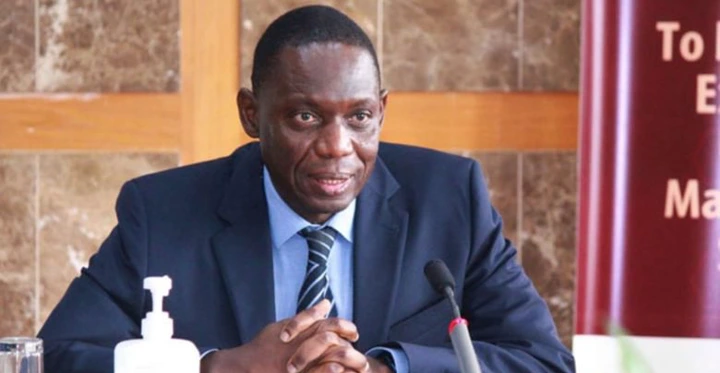Bank of Uganda was Instructed to Pay Shs 60 Billion to Fraudsters, Recovers US$ 8 Million

The Bank of Uganda has clarified that it did not initiate the transaction that resulted in the payment of shs 60 billion of taxpayers money to fraudsters.Today, the Deputy Governor, Michael Atingi-Ego, said that the Central Bank was instructed to make the payment.“These fraud incidents were initiated outside the BoU IT systems to divert the funds. Bank of Uganda is a paying entity. You get instructions to pay, and we pay as instructed. So let me repeat: the fraud incidents were initiated outside the Bank of Uganda IT systems, and instructions were received by the Bank of Uganda to pay the wrong beneficiaries, leading to the subsequent diversion of the funds. Now, where the diversion took place, how, and who were involved is a subject matter of the ongoing investigation for which I cannot comment,” said Atingi-Ego.Although he did not say who instructed the Central Bank to make the payment, it is worth noting that such instruction can only come from the Ministry of Finance.The Deputy Governor narrated how the entire incident unfolded.He said that there were two transactions that were related to debt service payments. The payment transactions in question included a payment of USD 6.134 million to the World Bank, which was instead paid to a company called Roadway Company Limited through a bank in Japan called MUFG. This happened on September 12, 2024.The second transaction was meant to be a payment to the African Development Fund of USD 8.596 million. It was instead paid to MJS International London in the UK on September 28, 2024.Upon discovering that the payments had not reached the intended beneficiaries, the Bank of Uganda immediately commenced internal investigations and reported the matter to the relevant government agencies.The matter was reported to the Criminal Investigations Directorate (CID) of the Uganda Police Force and also the Financial Intelligence Authority (FIA).At this point, the Bank of Uganda was aiming to achieve one objective: to have the funds recovered.“Beyond that, the Bank of Uganda took the necessary steps to recover these funds. That was really our key priority: that of these funds that had been diverted, how quickly can we get back these funds? So that’s what we have been working on. We put all our efforts into trying to recover these funds. So we instructed our correspondent bank, that is Citi Bank, and the banks where the funds had been credited to the accounts of the fraudsters, instructing them to freeze the said funds due to the suspected fraud that had taken place,” said Atingi-Ego.He added that so far, USD 8 million has been recovered.“We have since recovered $8.205 million. I repeat, we have recovered US dollars, 8.205 of the funds that had been sent to MJS International, London, UK, and these funds have been credited back to the Uganda government consolidated fund account in the Bank of Uganda,” he said.There have been media reports that the said funds had been frozen, which the Deputy Governor said is untrue.He, however, added that the Central Bank is pursuing the balance of USD 391,000.The Deputy Governor also said that the Bank of Uganda has not recovered the amount paid to Roadway Company through the MUFG Bank of Japan.“This bank has not been very cooperative. That’s why we haven’t recovered this money. Had the bank been as cooperative as the bank in the United Kingdom, even this money should have been recovered. So, while they haven’t been cooperative, we are working hard with our domestic and international partners, particularly through the Financial Intelligence Authority, to pursue the recovery of these funds, and we also expect the ongoing investigations to support our recovery efforts and help us understand the full extent of these fraudulent transactions. But more importantly, we are also cooperating with the Office of the Auditor General, who are conducting their independent investigations,” he clarified.There have also been media reports that the Central Bank was hacked, which purportedly resulted in the payment of the said money to fraudsters.In response, Atingi-Ego said this is untrue. The payments, he said, were initiated outside the Central Bank.“It is absolutely not correct that the BoU IT systems were hacked. Hacking involves the act of gaining unauthorized access to computer systems and networks. And I can tell you with all the confidence that there is no evidence whatsoever of any unauthorized access to the BoU IT systems to divert the funds that I have just told you about,” he said.Asked if there was any Bank of Uganda staff involved, the deputy governor said, “No staff has so far been implicated.”



0 Comments